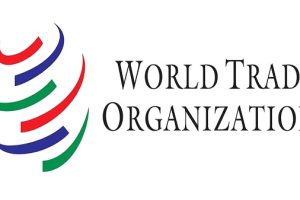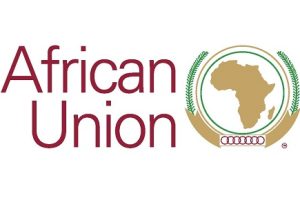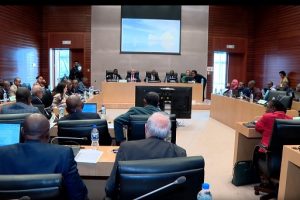
The last couple of years have seen expedited and increased calls for an equal representation of countries and continents at global stages. The world is moving into a multi-polar order with new and emerging state and non-state actors deepening their roles in global geopolitical matters.
The rise of the petrol-rich countries, also known as gulf nations such as the UAE, and Saudi Arabia, and the increasing assertiveness of Turkey, India and G20 nations have been flexing their muscles in all spheres. This shocked the world order to its core and resulted in reconfiguration of powers and alliances also presenting countries with a long list of foreign policy choices. Africa finds itself in a fiercely contested world and rapidly changing geopolitical developments. While the proliferation of actors could risk confrontations, it also expands alliance formations.
Blessed with vast natural resources and a youth population, Africa can no longer be a forgotten nation. And, the international community realizes that it cannot afford to leave behind a decisive continent. The continent’s growing economy and political decisiveness entice countries and blocs to crave a cemented partnership with Africa.
The world also is trying to include Africa although the path towards equal and fair representation of global arrangements is bumpy. The inclusion of Africa and Egypt into BRICS and the admission of Africa in the G20 countries could be mentioned as a leapfrog step towards an inclusive world order.
While these developments send a positive signal, Africa still finds itself on the back foot in the major decisions of global affairs some ironically on its internal matters. Having no seat in the United Nations Security Council means only member countries decide on outstanding peace and security matters, consequently creating fertile ground for external political intervention. On different occasions, the UNSC has passed wrong decisions and politically motivated measures against some countries that appeared contradictory to one of the veto-wielding nations. It is against this backdrop that the African countries are pushing for securing two permanent seats.
Ethiopia has been calling for Africa’s permanent seat at the United Nations Security Council amidst foreign intervention in its internal matter. The African Union has been making its agenda in its summits. And, the quest also received similar attention. This year’s meeting is at an important juncture when the continent is pushing for a fair representation on the world stage.
The 37th Ordinary Session of the Assembly of Heads of State and Government of the African Union (AU) was held last week under the theme: “Educate an African Fit for the 21st Century: Building Resilient Education Systems for Increased Access to Inclusive, Lifelong, Quality, and Relevant Learning in Africa.”
Speaking at the 37th Ordinary Session of the Assembly of the Heads of State and Government, the issue of securing Africa’s rightful place in the global arena was high on the agenda Moussa Faki Mahamat emphasized the need for concerted efforts to secure Africa’s representation.
The Commissioner stressed the importance of collaboration among all concerned parties to foster a strong, peaceful, and prosperous Africa. He highlighted that recurring conflicts, often fueled by militants and coup d’états, have hindered Africa’s progress towards a brighter future.
In his welcome remarks, Ethiopian Prime Minister Abiy Ahmed (PhD), underscored the importance of creating strong regional and continental platforms, emphasizing that these platforms are essential for addressing national development challenges from geopolitical, logistical, and security standpoints. He commended the African Union for its accession to the G20, as “marking a significant milestone” on the global stage.
“The Global South is becoming an unavoidable part of the solution to the main crises that afflict this planet…. Only an inclusive social project will allow us to establish prosperous, free, democratic, and sovereign societies,” Brazil’s President Luiz Inácio Lula da Silva stressed during the opening of the AU Assembly. President Lula offered to support the efforts of the African continent in closing the digital gap and reiterated his country’s readiness to help advance technology, ensuring that governance mechanisms for Artificial Intelligence (AI) reflect the perspectives of the Global South.
“The country (Brazil) has committed to facilitating improved dialogue between the G20 and the High-Level Panel set up by the UN Secretary-General. This initiative aims to stimulate discussions about the Global Digital Compact, focusing on creating effective, equitable, and wide-reaching governance frameworks to support Africa’s digital transformation”, he noted
Ambassador Salah A. Hammad, Head of AGA Secretariat and Senior Human Rights Expert, highlighted Africa’s significance as a player in international politics and forums. He lamented the absence of permanent seats for Africa on the UNSC, asserting that this situation fails to adequately represent the interests of the African people.
To address this imbalance, the African Union established the C10, a committee of ten heads of state and government, chaired by the President of Sierra Leone. The committee’s mandate is to facilitate an African position on the reform of the UNSC, advocating for a minimum of two permanent seats for Africa and an increase in non-permanent seats to five, ensuring representation from each region of Africa in a rotational manner.
“I’ve seen the permanent members being favorable to at least one African permanent member, the United States said so. The Russian Federation said so. China has been positive in this regard, the UK and France too. So for the first time, I’m hopeful that at least a partial reform of the UN Security Council could be possible for this flagrant injustice to be corrected and for Africa to have at least one permanent member in the Security Council. It is not guaranteed, nothing that, of course, depends on the Secretary-General. It depends exclusively on Member States of the General Assembly. But for the first time, I think there are reasons to be hopeful.”
It set the C-10 group in 2005 with the core mandate of canvassing support for one African position on reform of the Security Council.
On the reforms of international institutions and frameworks, the UN chief said, “The United Nations Security Council is paralyzed by geopolitical divisions. And its composition does not reflect the reality of today’s world. It must be reformed.”
He added, “The global financial system, including the Bretton Woods Institutions, has failed to provide a global safety net for developing countries in distress, as it was created after the Second World War in a different global economic situation.”
BY DESTA GEBREHIWOT
THE ETHIOPIAN HERALD WEDNESDAY 21 FEBRUARY 2024





